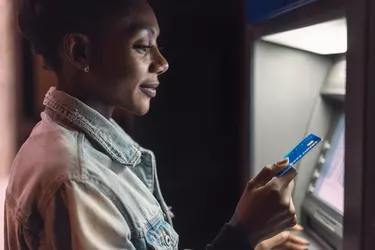
A two-party check is one with two payee names. It is also called a joint check or a multi-party check. Uniform Commercial Code regulations determine how the payees may present the check, but other than that the cashing process is the same as that for a one-payee check. If you plan to cash the check independently, alert the other party so you can avoid possible disagreements later.
The Payee Line
Video of the Day
The way the payer has written the payee names on the joint check determines your flexibility when cashing it. According to UCC rules, either one of the payees can sign and cash the check if the payer addressed it to you and the second party using "or" between the names, like "Mary Smith or Belinda Jones." If the payer used "and" or "&" between the names, both parties must sign and present the check together.
Video of the Day
Cashing at a Bank
Present the check at a branch of the issuing bank. The bank might charge a small fee for the service if neither party is an account holder, typically less than $10. Sign the back of the check above the endorsement line and write your name as is written in front. The other payee must do the same if he has to be present. Present a form of picture identification, such as your driver's license or state ID. You may try cashing the check at other banks too, but they may be less willing to help because they did not issue the check.
Opening a Bank Account
You can open a bank account with the check if you wish to avoid the bank's fees. Either payee can open a personal account and deposit the check if it is addressed to one "or" the other. The new account holder can disburse the other party's share of the cash later. Both parties must open a joint account if the check is addressed to one payee "and" or "&" the other.
Check Cashing Businesses
Check cashing businesses are often less strict than banks when cashing a two-party check. You might be allowed to cash the check alone as long as the other payee has signed it. There is a fee for the service that depends on the value of the check. Some charge a flat fee, while others charge a percentage of the amount. Various stores also offer check cashing services, including large retailers like Walmart and Public.